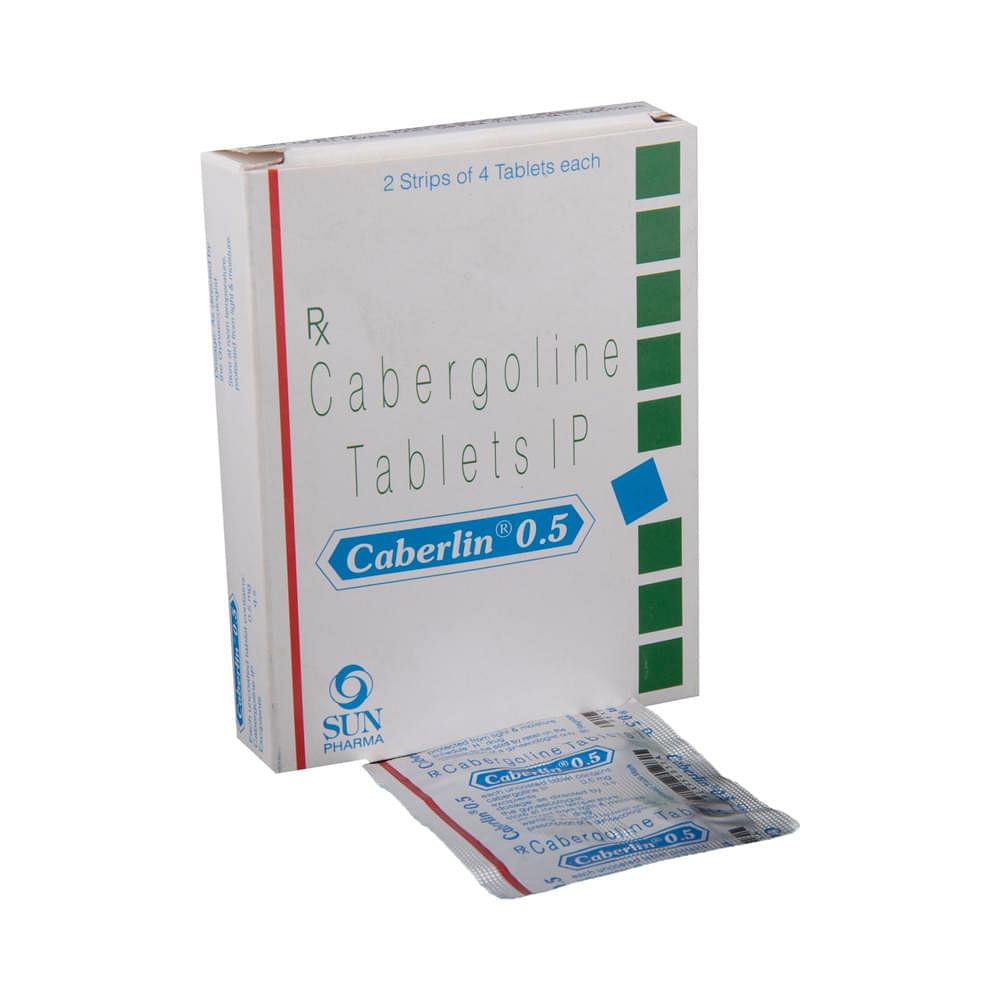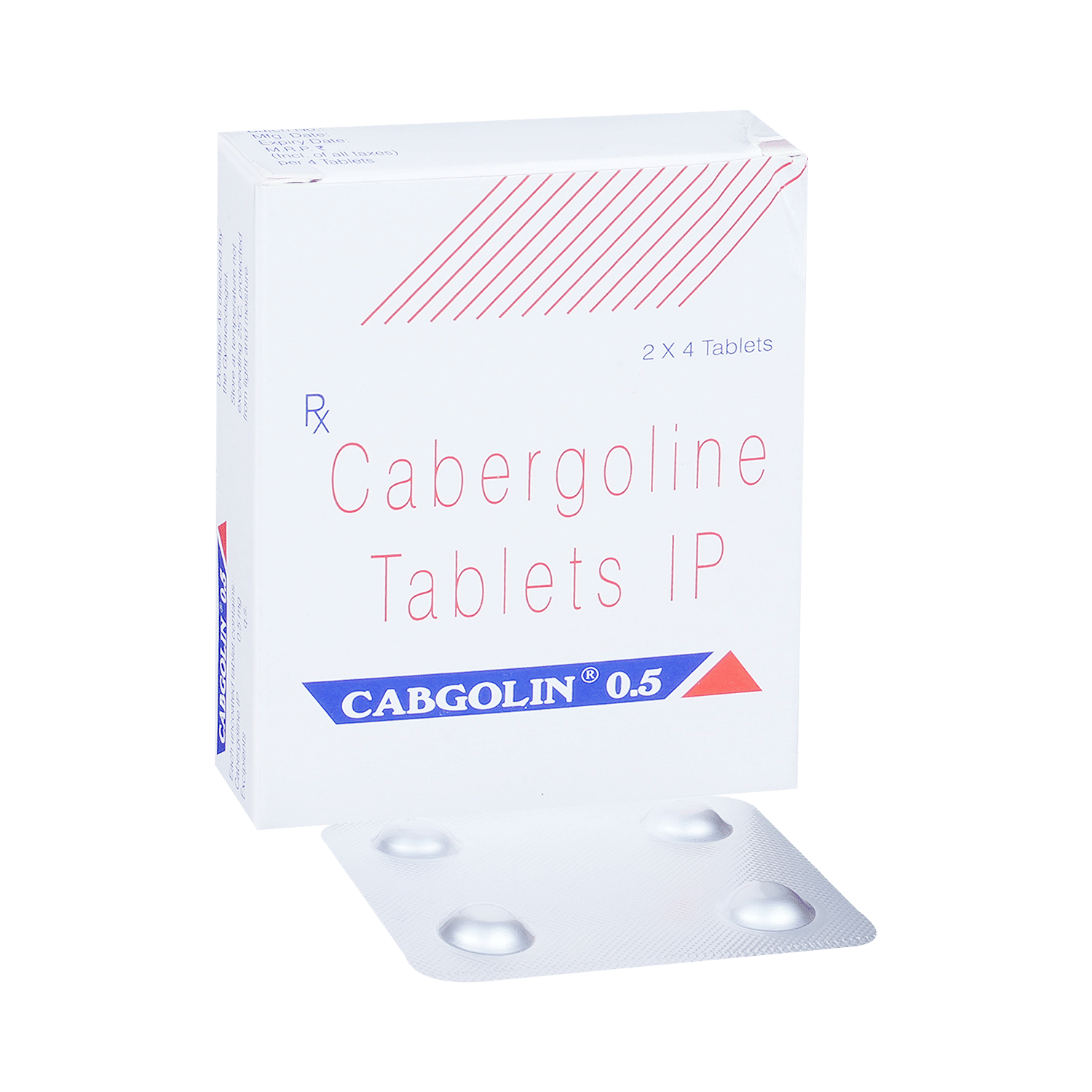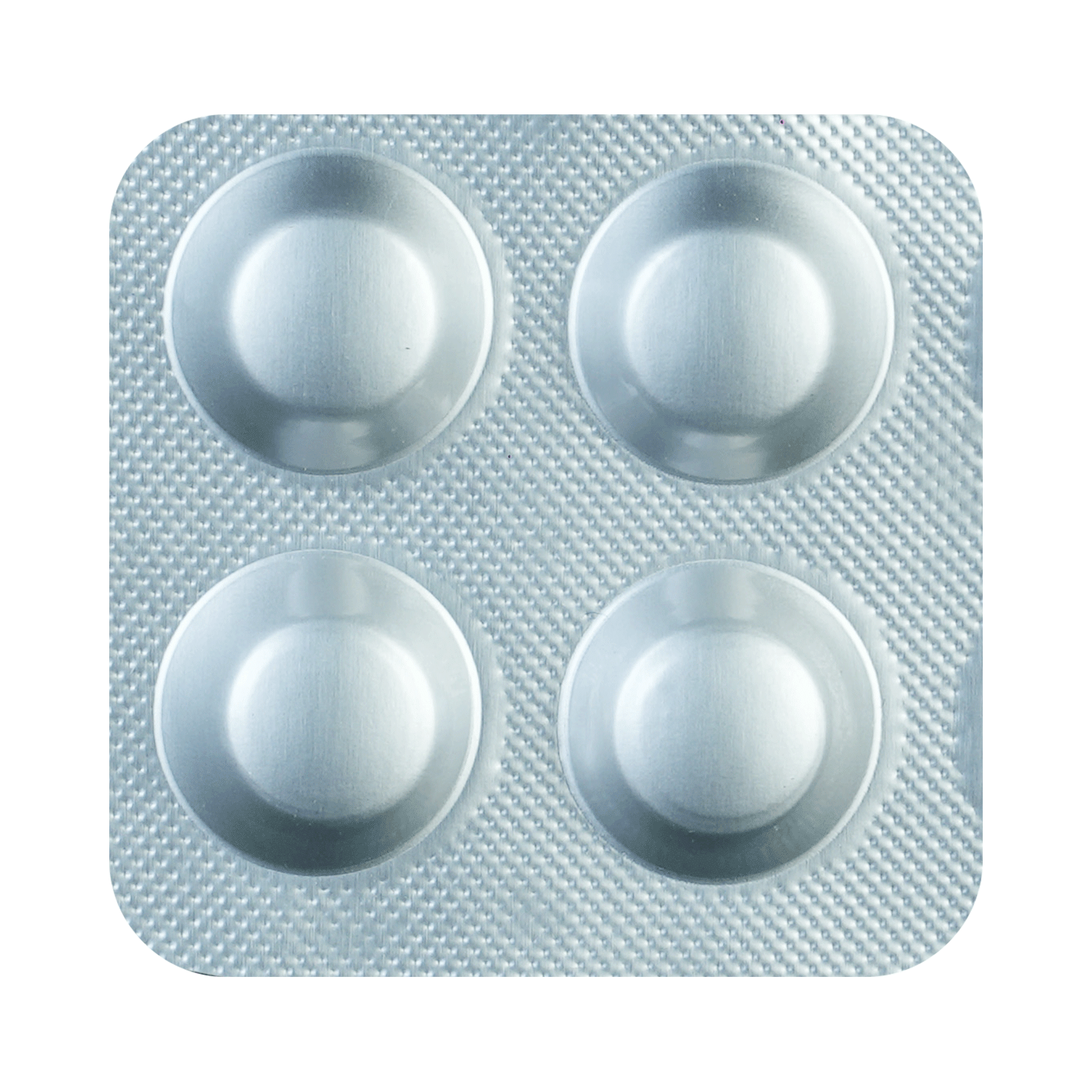
Cabotin 0.5mg Tablet
Manufacturer
H & Care Incorp
Salt Composition
Cabergoline (0.5mg)
Key Information
Short Description
Cabotin 0.5mg Tablet is a dopamine agonist used to treat high levels of prolactin and stop breast milk production in cases of stillbirth, abortion, or miscarriage.
Dosage Form
Tablet
Introduction
Cabotin 0.5mg Tablet should be taken with food, but take it at the same time to get the most benefit. It should be taken as your doctor's advice. The dose and how often you take it depends on what you are taking it for. Your doctor will decide how much you need to improve your symptoms. Swallow the tablets whole with a drink of water. You should take this medicine for as long as it is prescribed for you. The most common side effects of this medicine include nausea, headache, dizziness, and low blood pressure. If these bother you or appear serious, let your doctor know. There may be ways of reducing or preventing them. To overcome dizziness, you must avoid driving or rise slowly from sitting or lying position.
Directions for Use
Take this medicine in the dose and duration as advised by your doctor. Swallow it as a whole. Do not chew, crush or break it. Cabotin 0.5mg Tablet is to be taken with food.
How it works
Cabotin 0.5mg Tablet works by decreasing the release of prolactin, a hormone that stimulates breast milk production. This stops the production of breast milk in case of stillbirth, abortion or miscarriage.
Quick Tips
Take Cabotin 0.5mg Tablet with food Take it at the same time to get the most benefit Swallow the tablets whole with a drink of water Take this medicine for as long as it is prescribed for you Rise slowly if you have been sitting or lying down Be cautious while driving or doing anything that requires concentration as Cabotin 0.5mg Tablet can cause dizziness and sleepiness
Related Medicines

Caberlin 0.5 Tablet

Cabgolin 0.5 Tablet

Cabernorm 0.5 Tablet

Caberlee 0.5mg Tablet

Caberdost 0.5 Tablet

Cabersmart 0.5mg Tablet

Cabrolix 0.5mg Tablet

Cabercet Tablet

Cabrix 0.5mg Tablet

Cabogen 0.5mg Tablet
Frequently asked questions
What is Cabotin 0.5mg Tablet and what is it used for?
Cabotin 0.5mg Tablet contains Cabergoline, which belongs to a group of medicines that reduces the level of prolactin. It is used to treat medical problems such as galactorrhoea (abnormal milk discharge) caused by abnormally high levels of prolactin. It is also used to stop breast milk production (lactation) in cases of stillbirth, abortion, or miscarriage.
How and in what dose should I take Cabotin 0.5mg Tablet?
Take this medicine as directed by your doctor. The recommended dose and duration depend on your medical condition. It is best to take this medication with food or after meals to minimize the risk of nausea or vomiting.
What are the possible side effects of using Cabotin 0.5mg Tablet?
You may experience temporary low blood pressure, which can cause dizziness, during the initial days of treatment. To avoid this, it's crucial to change positions gradually when sitting, standing, or lying down. Your doctor may suggest monitoring your blood pressure regularly during this period. Common side effects include drowsiness, nausea, headaches, dizziness, vertigo, stomach pain, indigestion, fatigue, and weakness. If any of these side effects bother you, consult your doctor immediately.


